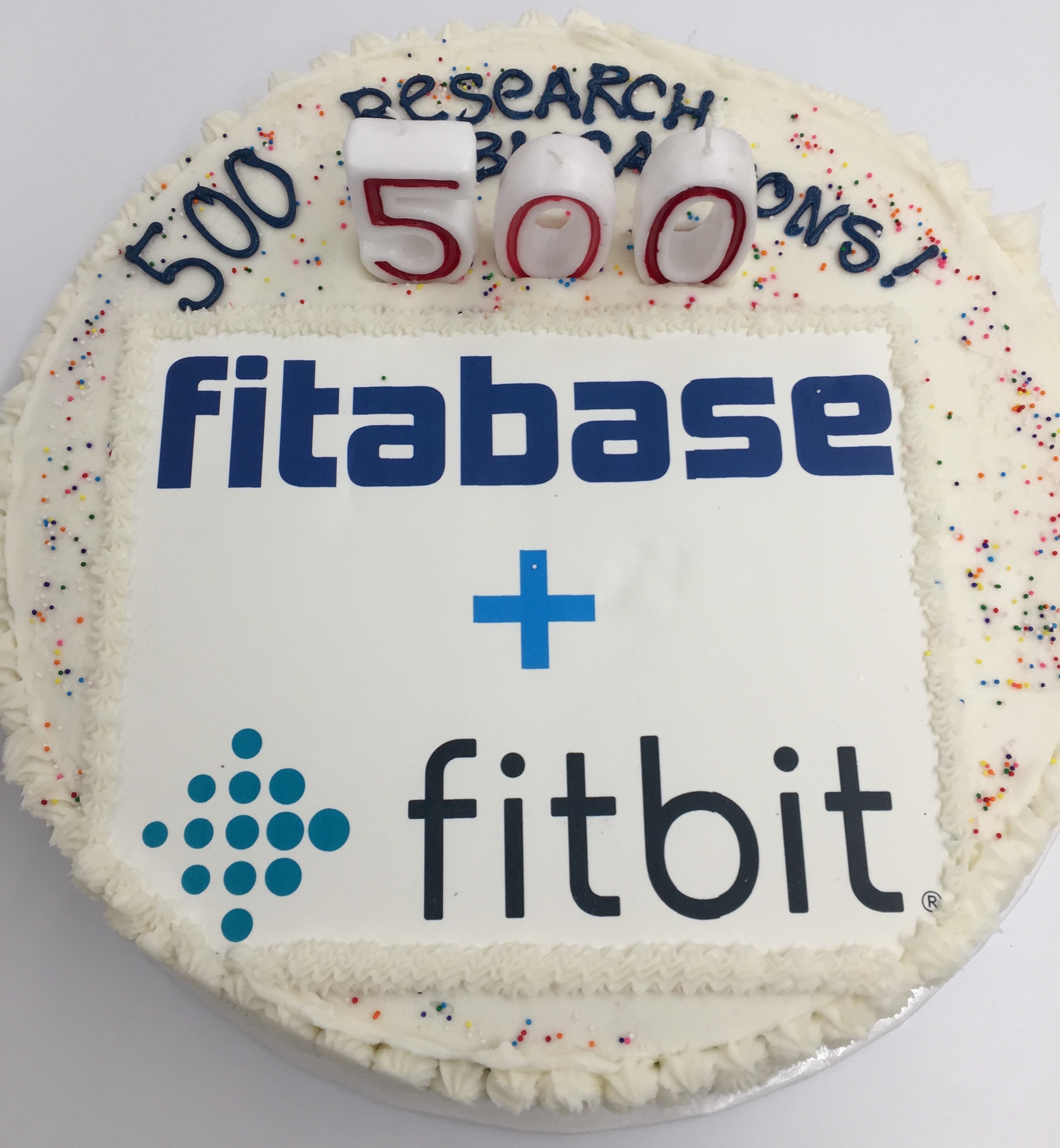
In 2012, we started Fitabase to help researchers understand and make use of the new capabilities of Fitbit activity tracking devices. At that time, only one device was available and there was very little research being done that used these new consumer-friendly tools for health research. Our history working side-by-side with academic researchers on physical activity and data-driven measurement and intervention trials led us to believe that Fitbit had a place in research, and if they were going to become truly useful researchers would need a professional data management tool to help them understand and access data. Over the last five years we have been working hard to meet the ever increasing demand by a growing research, health care, and clinical customer base that wants to use best-in-class consumer health devices and access the data they need to meet their study and program implementation goals. As we've supported more and more amazing research being conducted by institutions around the world we've seen that enthusiasm echoed in the published research literature.
A little over a year ago we started the Fitbit Research Library to collect and make publicly available all published research studies that used Fitbit devices. When we launched, we were excited to announce that we had collected 162 research studies. That seemed like an overwhelming amount of published work, but little did we know that it was just the tip of the iceberg. Since then we've been updating the library every few weeks with newly published work, typically letting our newsletter subscribers (subscribe here) know when interesting and innovative work has been published. Today, we're excited to announce a big milestone for our library and the wider community of researchers using innovative methods and technologies.
The Fitbit Research Library has 500+ Published Studies!
As of December 11, 2017, we've collected 502 published research studies that use or explore the use of Fitbit devices. In our library you'll find researchers using every Fitbit device and nearly every data type that's available, across a variety of different study populations and environments. While compiling the library over the last year, we’ve also been taking the time to explore and document the data and details behind each study’s design. Let’s dive in!
Studies by Year
From 2012 to today, we’ve been able to locate 502 different published studies that mention using a Fitbit device as part of their study design. Keep in mind 2017 isn't over yet and this number is likely to increase in the next few weeks!
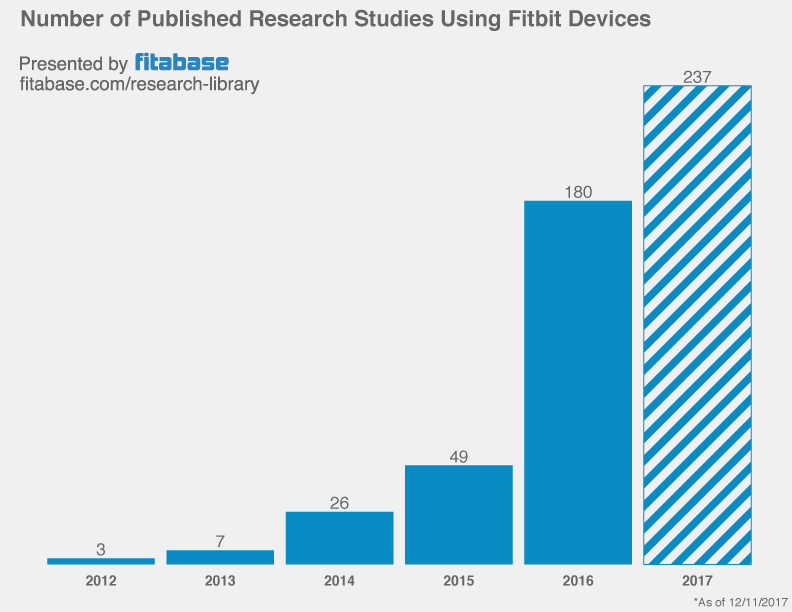
What Devices are Researchers Using?
As part of our work identifying publications we make sure to examine each study's methodology to see what Fitbit devices they are using. While not all studies mention the specific Fitbit model, most do! We've broken down the number of publications by device here. You'll notice that the Zip, One, and Flex have been quite popular with the research community. Interestingly, heart rate devices such as the Charge HR and now Charge 2, Alta HR, and Blaze are becoming more common. (Keep in mind that some studies use more than one type of device.)
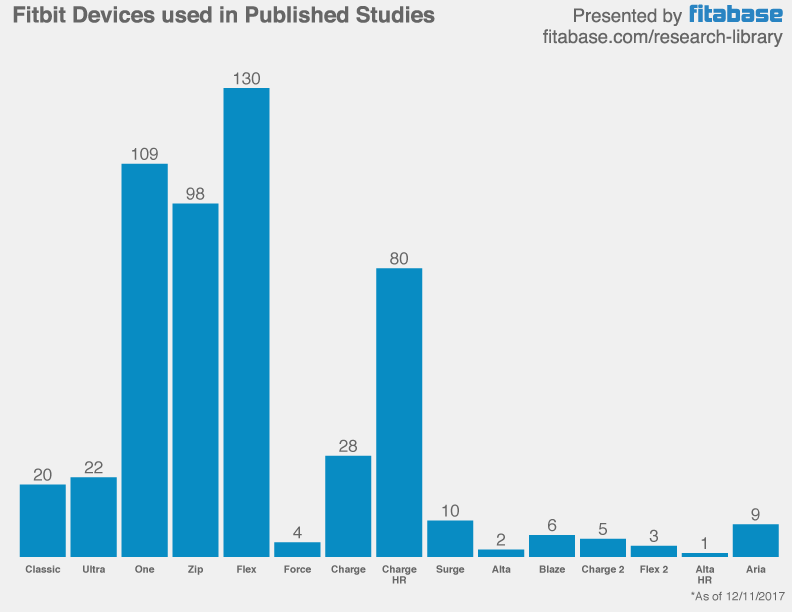
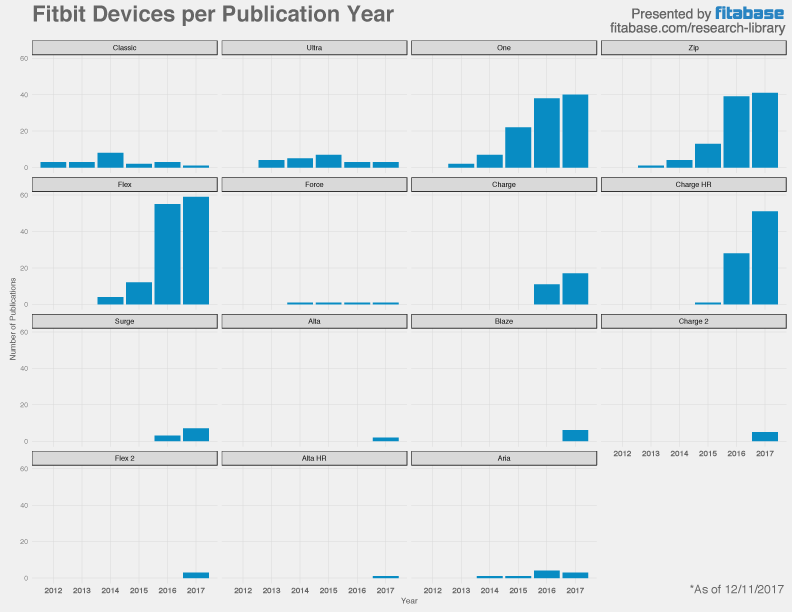
What Data are Researchers Collecting?
When we read through the studies we identify, we also make note of what types of data they are collecting from the Fitbit device they've chosen to use. While all Fitbit devices collect more than just steps, that particular data type is by far the most popular. We're excited to see in our data that sleep, heart rate, and activity intensity are also popular data types.
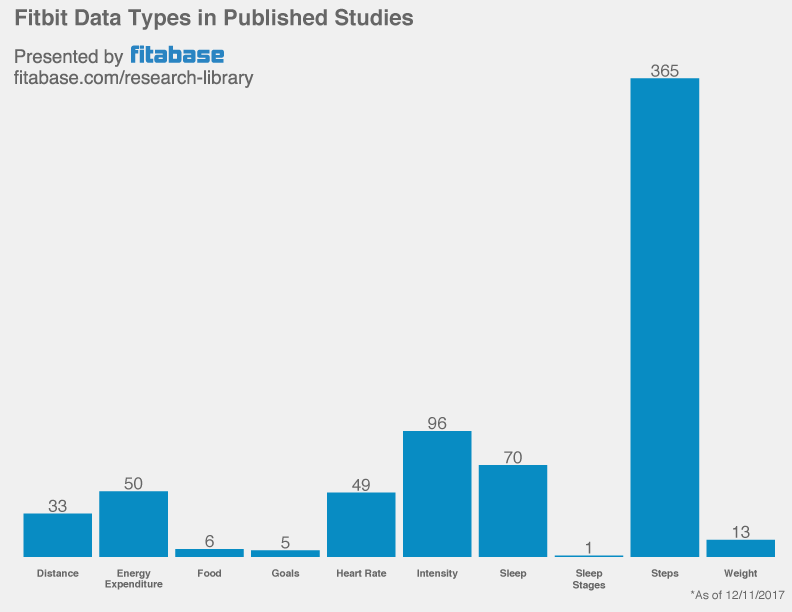
What Type of Participants are Recruited?
Another piece of information we use to categorize each of the published studies we bring into the library is related to participant characteristics. While most studies are conducted with health adults, many of the published studies in the last year have focused on feasibility, usability, validity, and intervention methods related to using Fitbit devices in patient populations. Spanning from children with congenital heart disease to adults with severe mental illness, researchers are using Fitbit devices to better understand and positively impact the health behaviors of all types of participants.
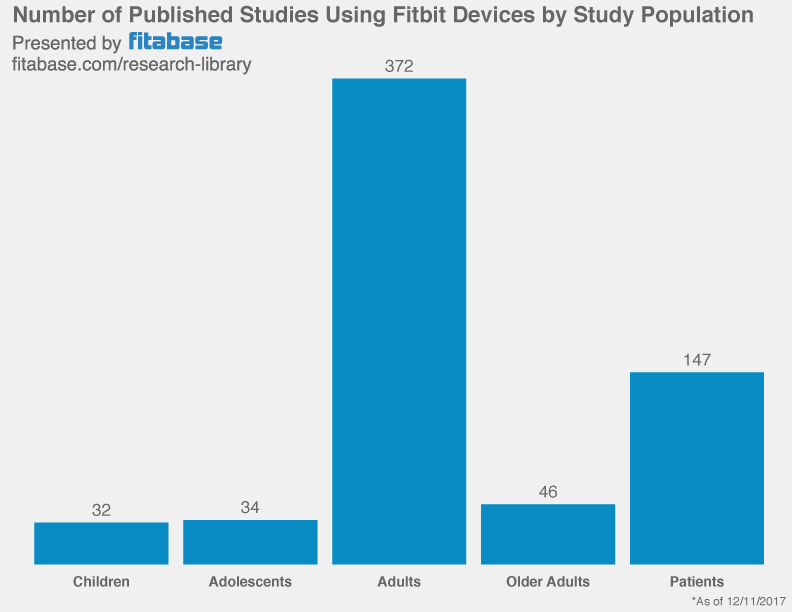
What Type of Studies are Conducted?
Lastly, we classify the study design of each of the published studies we identify. It's probably no surprise that the research community is focused on validating Fitbit devices and the data they provide. Interestingly, interventions and measurement(cross-sectional) studies make up the second and third most popular study designs.
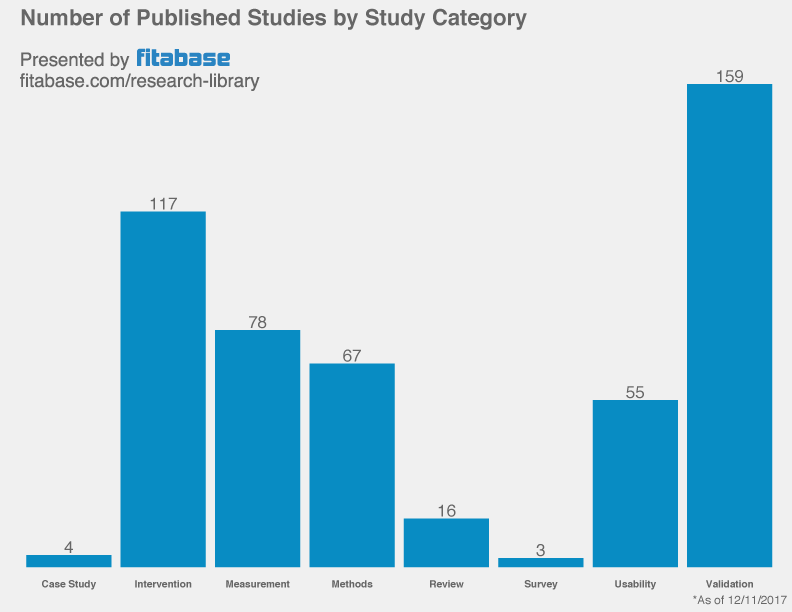
Again, the full Research Library is online and freely available to all. If you know of a published study that we’ve missed please let us know!
We also want to acknowledge all the support we've received from our current and past customers. Their work makes up a huge chunk of this growing library, and we're honored to have played a role in helping bring their research to the world. We also want to thank Fitbit, especially our friends on the API and Health Solutions teams. Since we started, the support and partnership we've received from Fitbit has been astounding. We're looking forward to 2018, and being able to support and highlight all the amazing new research being done with Fitbit devices.